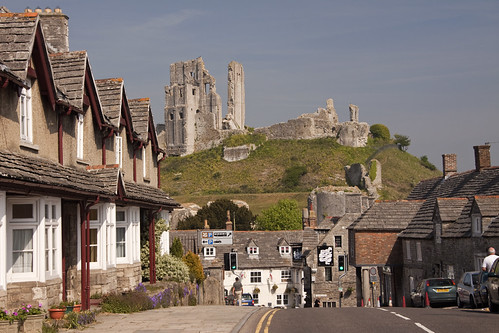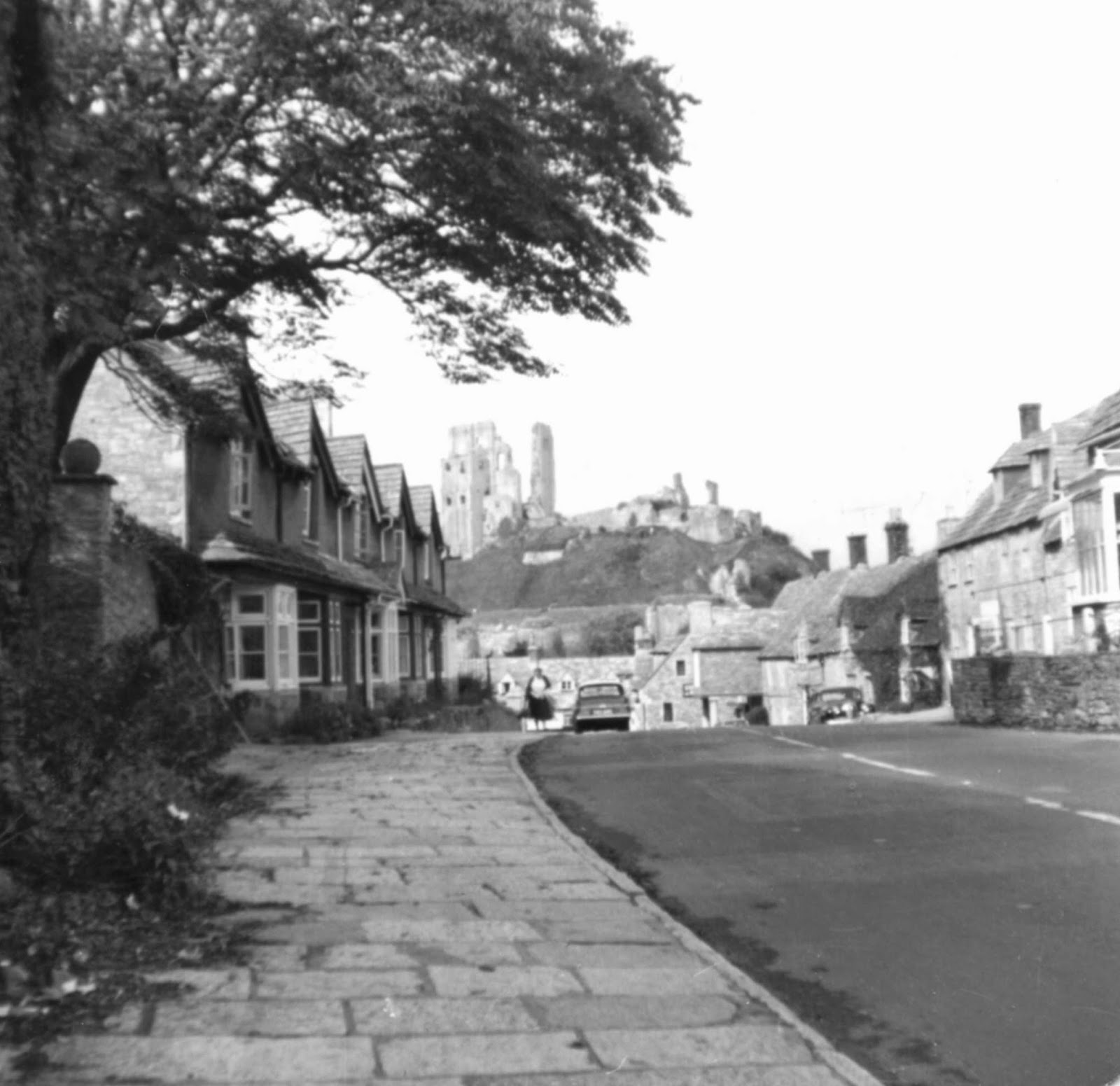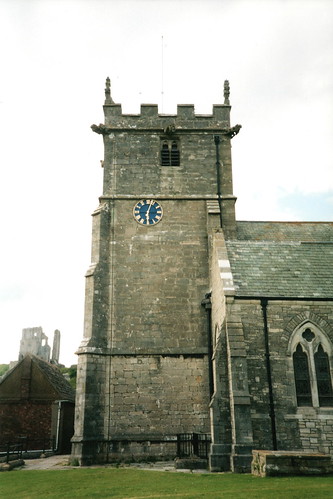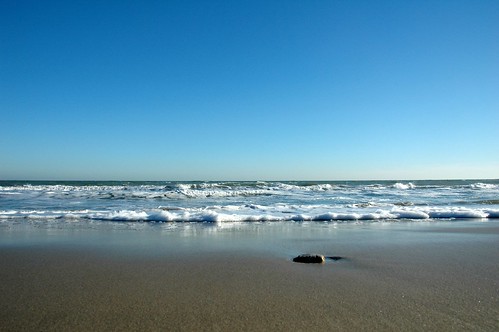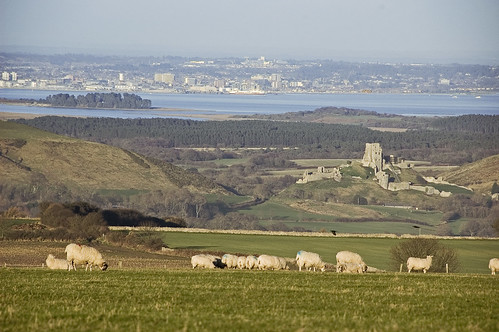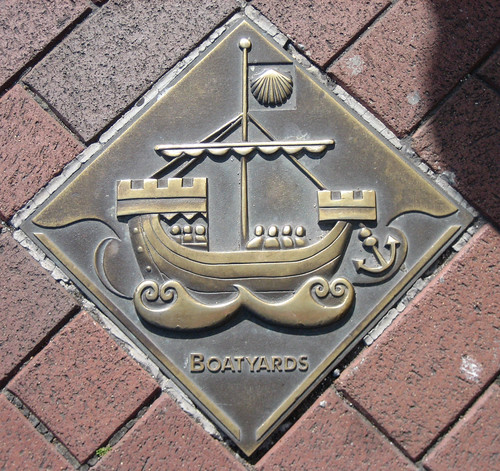 |
| "Joseph Pollard son of James Pollard and Elizabeth Threshire, born at Corfe Castle, Isle of Purbeck Dorsetshire, Old England. November 23 - 1819. |
Lisa Paul found this account of his conversion and emigration to the United States in another history written by one of his daughters.
_____________________________________________________________________________________
"In the year of 1848 he (Joseph) heard the Mormon Elders preach. He was inspired by their sermons and recognized the truth. April 10, 1849 he first obeyed the gospel. He was baptized by John Griffith and felt unspeakable joy at this experience. He was very enthusiastic about his church work, and was soon promoted (they used to say that in the 'olden days') from a deacon to elder. He went out tracting through the Bedford branch, and later was made President of this branch."
“November 17, 1854: Joseph Pollard of the town of Deptford, London River in the County of Kent, Old England on the 17th day of November 1854 left his employment as ship wright in the employment of Mr. Thompson ship and boat builder, London River, with the intention of emigrating with his wife and three children to the land of America.
His account:
“Monday left London for Liverpool; arrived at 3 o’clock p.m. Met at station by Mr. John Follett and conveyed to his home where we spent the next day.
“Saturday, left the dock and anchored in the River; Sunday was spent in preaching and prayer, taking of the Lords supper; Monday the 27th in the afternoon was towed by a tug boat “Constitution” out of the river, made sail that night blowing right fresh ahead. Tuesday breeze continues to fresh in ship under double reef. Topsails toward evening, blowing a heavy gale and still increasing during the night. The ship laboring much and much sickness among the passengers. At daylight the ship driving on the shore it was thought best by the captain and pilot to base up and run the ship back to Liverpool.
“We arrived safely at Liverpool and cast anchor about 2 o’clock. Gale still continued day by day with two anchors to hold the ship. Passengers fast recovering. Saturday December 2nd visited by President Franklin D. Richards.
Monday and Tuesday gale continues. The President and council met and appointed that the following day be set apart for fasting and prayer that the wind may be more favorable, that we may again commence our voyage.
“Wednesday the 6th prayers continued on all parts of the ship with an outpouring of the Holy Spirit. Thursday more moderate. The ship was again towed out of the river by the tug “P----“. Wind was blowing fresh and right ahead and a nasty sea. Passengers again became sick no stopping among them my wife and children. Wind continued Friday and Saturday. One birth Saturday.
“Rounded Holy head about 3 p.m. Pilot left about noon Monday.
“Wednesday about 3 p.m. we were much alarmed by being almost run into by a large ship. We all felt thankful for our narrow escape.
“Sickness continued and several deaths among the children from measles and inflammation.
“Christmas day was most beautiful, passengers came on deck except those sick. Our youngest child Lydia had measles. My wife and Brothers Parsons and Crosby had the worst cases of sea sickness.
“The captain seems a very nice man and deserves praise for his kindness to the passengers and the cleanliness of the ship in general.
“December 30th sited land. Flying fish appeared. Several small islands in sight and now and then a coasting schooner.
“January 9th reached entrance of the Great Mississippi and shortly were taken in tow by steam tug “Ocean” crossing the bar up to New Orleans where we arrived Thursday 11th at 12 noon.
“Were met by Brother Meyaw our agent who advised us proceed to St. Louis.
“At Orleans my wife was so sick we were obliged to carry her from the ship to the boat.
“Up the Mississippi calling at many towns on the banks, going on shore for firewood. Weather warm as our summers in England until up the river we came into frost and snow. Landed at St. Louis January 22nd met by Brother William Moorison and taken to his home, remained with him about 12 days after which Brother John Follett rented apartment together in Broadway.
 |
| St. Louis, Missouri (1854) |
“Weather very cold. River remained frozen over for two months. Most of the passengers were taken to the meeting house where many died, others were scattered. Many went to the coal fields.
“I and Brother Follett remained together that winter.
“I will say we both with our families were treated well by many not in the church, particularly by one John Mageo, an Irish Catholic who kept a store.
“In the spring we got work on the steamboat at our business as ship carpenters in the employ of Captain James Eadis and Nelson, known as The Submarine Diving Company. There were four of our ship writes emmigrated [sic] together and all apprentices together in the same port and all now were employed by the same company.
“Brother Follett was taken sick in the fall and died the next spring. I was also taken sick in the summer but God spared my life.
“We were member of the St. Louis stake of Zion. I made the acquaintance of President Erastus Snow, Mily Andrus, James Hart, Eldredge, George A. Smith, Parley P. Pratt and hundreds of other good saints. Samuel Gray and William Algood left for Florence.
“On October 7th 1856 I was ordained a High Priest under the hands of George A. Smith and Erastus Snow and made a member of the High Council.
________________________________________________________________
More of the story is available on the FamilySearch website in an extract from the Latter-Day Saint Biographical Encyclopedia.
His house was always open to the missionaries, and among the
many “Valley” Elders who shared in his hospitality was Apostle Parley P. Pratt,
who stayed at his home about a month immediately before going to Arkansas,
where he was murdered.
In June, 1857, Elder Pollard continued his journey
Zion-ward, joined the emigration at Florence, Nebraska, and crossed the plains
in Capt. Jacob Hoffines' company. Several stampedes occurred on the plains; in
one of these 46 head of cattle were lost. On one occasion the cattle stampeded
when hitched to the wagons. During the affair Elder Pollard and wife, together
with a number of others, were severely hurt, being run over by several wagons.
Through administrations and prayer Elder Pollard was healed in a most
miraculous manner, and the following day was able to get around again. The
company arrived in the Valley Sept. 22, 1857, having camped several times in
close proximity to the baggage trains belonging to Johnston's army.
Elder
Pollard located in the fifteenth Ward, Salt Lake City, where he resided till
the time of his death. He found employment as a carpenter for Pres. Brigham
Young, continuing in his employ until 1869, when he commenced work for the Utah
Central railway company. Shortly after his arrival in the Valley, he was chosen
as a Ward teacher, and in 1861 was appointed to act as second counselor to
Bishop Andrew Cunningham. He subsequently served as a second counselor to
Bishop Robert T. Burton, whom he finally succeeded as Bishop of the Ward June
27, 1877. In 1862 he yielded obedience to the principle of plural marriage by
marrying Ruth Allen, who died about twenty years afterwards. Bishop Pollard
died in Salt Lake City, Feb. 21, 1890. He was the father of seven children, and
was universally known as a humble, upright man and a faithful Latter-day Saint.
_______________________________________________________________________________________ Extract from a Deseret News Editorial February 25th 1890 on the occasion of Joseph Pollard's death.
Yesterday we announced the fact that Bishop Pollard of the 15th ward, this city, was seriously ill. He had been suffering for several days from an attack of influenza. Pneumonia supervened and the good old man passed peacefully to the Spirit World at five o’clock this morning.
A sterling character was he; a trifle blunt, being phenomenally outspoken, but with a heart as tender as a child's.
His sincerity was sublime, his devotion to what he conceived to be his duty inspiring, and we believe that we do not over state the facts when we say that probably no other Bishop in the church was more familiar with his flock, collectively and individually.
It is greatly to his credit that the poor among his people were the special objects of his solicitude.
He was not an educated man, so far as scholastic attainments are concerned, but he had that auspicious of power which exists through a confirmation of native good sense, ripened experience and a conscientious regard for truth.
Although he was ready with sharp reproof of the evil-doer and laggard, he was equally prompt in dispensing sweet words of consolation and comfort to the unfortunate and erring.
The people loved him because they believed in him.
Death came to him as a sweet harbinger of rest which had no terrors for him.






